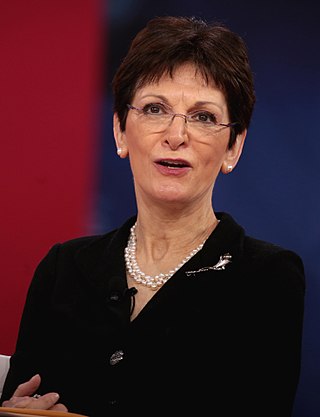
Idi Amin Dada Oumee was a Ugandan military officer and politician who served as the third president of Uganda from 1971 to 1979. He ruled as a military dictator and is considered one of the most brutal despots in modern world history.

The Soviet–Afghan War was a protracted armed conflict fought in the Soviet-controlled Democratic Republic of Afghanistan (DRA) from 1979 to 1989. The war was a major conflict of the Cold War as it saw extensive fighting between the DRA, the Soviet Union and allied paramilitary groups against the Afghan mujahideen and their allied foreign fighters. While the mujahideen were backed by various countries and organizations, the majority of their support came from Pakistan, the United States, the United Kingdom, China, Iran, and the Arab states of the Persian Gulf. The involvement of the foreign powers made the war a proxy war between the United States and the Soviet Union. Combat took place throughout the 1980s, mostly in the Afghan countryside. The war resulted in the deaths of approximately 3,000,000 Afghans, while millions more fled from the country as refugees; most externally displaced Afghans sought refuge in Pakistan and in Iran. Approximately 6.5% to 11.5% of Afghanistan's erstwhile population of 13.5 million people is estimated to have been killed over the course of the conflict. The Soviet–Afghan War caused grave destruction throughout Afghanistan and has also been cited by scholars as a significant factor that contributed to the dissolution of the Soviet Union, formally ending the Cold War.

Amin Maalouf is a Lebanese-born French author who has lived in France since 1976. Although his native language is Arabic, he writes in French, and his works have been translated into over 40 languages.

Sumuvvul Ameer Mohamed Amin Dhoshimeynaa Kilegefaanu, popularly known as Mohamed Amin Didi, was a Maldivian politician who served as the first president of the Maldives and as the head of government between January 1, 1953, and August 21, 1953. Amin Didi was also the principal of Majeedhiyya School from 1946 to 1953.

Mona Charen Parker is an American columnist, journalist, and political commentator. She has written four books: Useful Idiots: How Liberals Got it Wrong in the Cold War and Still Blame America First (2003), Do-Gooders: How Liberals Hurt Those They Claim to Help (2005), both New York Times bestsellers, Sex Matters: How Modern Feminism Lost Touch with Science, Love, and Common Sense (2018), and Hard Right: The GOP's Drift Toward Extremism (2023). She was also a weekly panelist on CNN's Capital Gang until it was canceled. A political conservative, she often writes about foreign policy, terrorism, politics, poverty, family structure, public morality, and culture. She is also known for her generally pro-Israel views.

The Last King of Scotland is a 2006 historical drama film directed by Kevin Macdonald from a screenplay by Peter Morgan and Jeremy Brock. Based on Giles Foden's 1998 novel, its plot depicts the dictatorship of Ugandan President Idi Amin through the perspective of Nicholas Garrigan, a fictional Scottish doctor. The film stars Forest Whitaker, James McAvoy, Kerry Washington, Simon McBurney, and Gillian Anderson. The title of the film refers to Amin's spurious claim of being the King of Scotland.

Balthasar's Odyssey is a 2000 novel by Amin Maalouf set in 17th century Europe and the Levant. Originally written in French, it was shortlisted for the International Dublin Literary Award in 2004.

The Crusades Through Arab Eyes is a French language historical essay by Lebanese author Amin Maalouf.

The Ministry of Finance is a ministry of the government of Lebanon.

The siege of Ma'arra occurred in late 1098 in the city of Ma'arrat Nu'man, in what is modern-day Syria, during the First Crusade. It is infamous for the claims of widespread cannibalism committed by the crusaders.

Ibrahim Maalouf is a French-Lebanese trumpeter, producer, arranger, and composer. In 2022, he became the first Lebanese instrumentalist nominated at the Grammy Awards for his album Queen of Sheba in collaboration with Angélique Kidjo.
Adriana Mater is the second opera by the Finnish composer Kaija Saariaho, with a libretto in French by her frequent collaborator, Amin Maalouf. The Opéra National de Paris and the Finnish National Opera jointly commissioned the opera. It received its world premiere at the Opéra Bastille on 3 April 2006 in a production directed by Peter Sellars. The production was dedicated to Gerard Mortier, Artistic Director of the Paris Opera.

JC Lattès is a French publishing house. A division of Hachette Livre since 1981, JC Lattès' catalogue includes the works of Dan Brown, as well as Fifty Shades of Grey by E. L. James.
Éditions Grasset is a French publishing house founded in 1907 by Bernard Grasset (1881–1955). Grasset publishes French and foreign literature, essays, novels and children's books, among others.

The Gardens of Light is a 1991 novel by the French-Lebanese writer Amin Maalouf. It focuses on the Parthian religious thinker Mani, founder of Manichaeism.
Émilie is an opera – specifically a 9-scene, 75-minute monodrama for soprano – by Finnish composer Kaija Saariaho to a libretto by Amin Maalouf. It was written in 2008. Based on the life and writings of Marquise Émilie du Châtelet (1706–1749), the work premiered at the Opéra de Lyon, France, on 1 March 2010, with Finnish soprano Karita Mattila, its dedicatee, in the title role. It recounts the achievements of this mathematician, physicist, and mistress of Voltaire: the first woman to establish an international scientific reputation, with pioneering work in the study of fire.

Cambodian genocide denial is the belief expressed by some Western academics that early claims of atrocities committed by the Khmer Rouge government (1975–1979) in Cambodia were much exaggerated. Many scholars of Cambodia and intellectuals opposed to the US involvement in the Vietnam War denied or minimized reports of human rights abuses of the Khmer Rouge, characterizing contrary reports as "tales told by refugees" and US propaganda. They viewed the assumption of power by the Communist Party of Kampuchea as a positive development for the people of Cambodia who had been severely impacted by the Vietnam War and the Cambodian Civil War. On the other side of the argument, anti-communists in the United States and elsewhere saw in the rule of the Khmer Rouge vindication of their belief that the victory of Communist governments in Southeast Asia would lead to a "bloodbath."
Natasha Lehrer is a writer and literary translator. She was born in London and studied at Oxford University and the Université de Paris VIII. Her translations have received multiple awards, and been longlisted and shortlisted for several prizes. She was the joint winner of the 2016 Scott Moncrieff Prize for their translation of Nathalie Léger's Suite for Barbara Loden. Her writing has appeared in The Guardian, The Observer, the Times Literary Supplement, The Nation, Haaretz, Frieze Magazine, Fantastic Man, The Paris Review, among other publications. She is a former judge of the Jewish Quarterly-Wingate Prize.
On the Isle of Antioch is a 2020 novel by the French-Lebanese writer Amin Maalouf.














